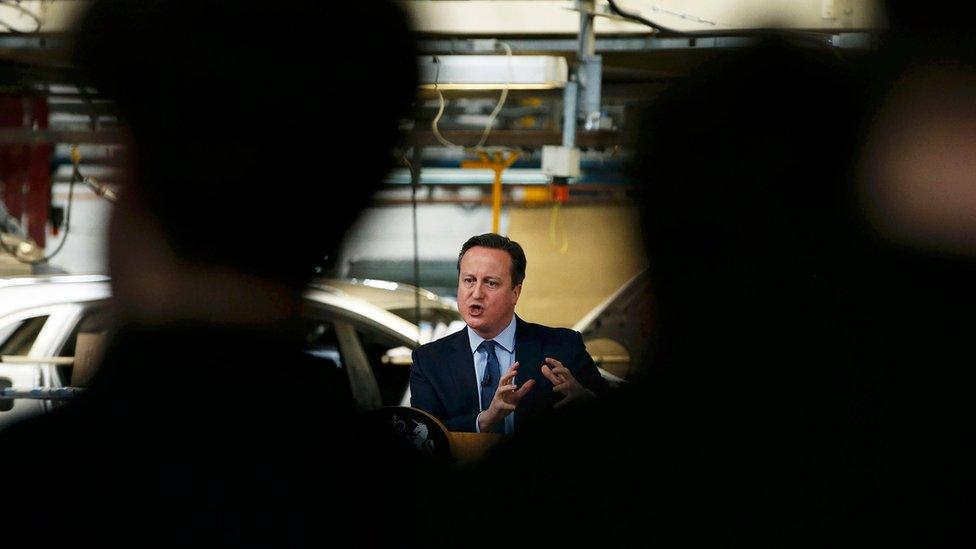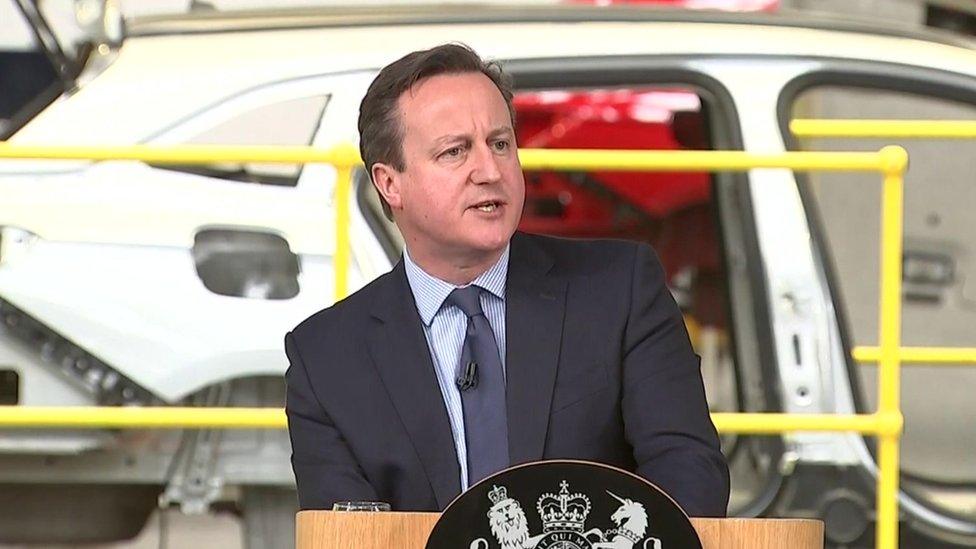EU referendum: PM puts job security at heart of message
- Published

A long shift is hard enough. No one wants to go home at the end of a long day worrying that their job might disappear.
But that was the message the prime minister sent Vauxhall car workers in Ellesmere Port home with tonight.
And it's the message that he wants you to hear too. He believes that if we as a country vote to leave the European Union, jobs will disappear and businesses might close. In fact, the shakiness it could provoke in the economy could mean it costs more to borrow and interest rates go up.
Grayling hits back
It is not exactly a happy combination of risks to mull over as you ponder your referendum decision. And it is furiously challenged by his opponents in this campaign, many of whom are of course in his own party.
Commons Leader Chris Grayling's counter claim was that the jobs at risk are jobs in Spain, France or other countries if we left the European Union and they then refused to trade with us.
But if it were ever in doubt, the security of your job will be absolutely core to the prime minister's campaign to keep the UK in the European Union.
And in his speech today, he also claimed - to their fury - that members of the Leave campaign believe those potential job losses and economic turmoil are a "price worth paying" to get out of the EU.
Central challenge
They argue in return that the risks to our economy are real from staying inside the European Union, even though we are not in the eurozone, because of the turmoil there.
Certainly, there was something unfortunate about today's timing - just as David Cameron was extolling the benefits of the single market, financial markets were churning, as a huge stimulus package from the European Central Bank failed to settle nerves.
The prime minister said this morning, the "biggest thing on the ballot paper" is the future of the economy.
Again, this comes down to the central challenge of this choice. The two sides will spit at each other on a daily basis, furiously disputing each other's version of events.
It is true that there are big unanswered questions about how the economy would change if we left the EU. It is true that there are serious warnings from senior figures like the Bank of England Governor, Mark Carney, on the possible risks.
Parallel universe
It is also true that the economy and businesses don't like it very much when politicians introduce a whiff of uncertainty.
What you have to decide between is staying in the EU, which is evolving, as it always has, and leaving - when those campaigning for exit can tell you how they would like the world to be, but can't guarantee it - there is no way they can, because it depends on hypothetical negotiations that would only take place if we voted Out.
It's a familiar, but changing situation - versus a parallel universe, on jobs and prosperity, and everything else.
PS: Both sides are already slicing and dicing the facts to their advantage. To help you get the reliable information you want, it is well worth a look at the BBC's Reality Check pages.
- Published10 March 2016
